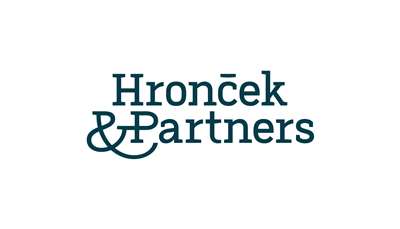Due diligence, or company verification, is a key process that is performed primarily prior to an acquisition, investment, or partnership with a company. Its purpose is to provide thorough, objective information about the financial situation, legal aspects, operational procedures, and risks associated with the company. This process is essential for ensuring an informed decision and minimizing risks.

What is due diligence
Due diligence is the process of thoroughly and systematically reviewing and evaluating information about a business, company, or asset before entering into a transaction such as an acquisition, investment, merger, or joint venture. The purpose of due diligence is to obtain an objective picture of the entity, identify opportunities and risks associated with the transaction, and provide sufficient information to interested parties.
Why is due diligence performed?
Due diligence is performed to obtain detailed and objective information about a company prior to an acquisition, investment, or partnership. The main reasons for conducting due diligence are:
Obtaining information
Due diligence provides thorough and objective information about the financial situation, legal aspects, operating procedures, and risks associated with a company. This allows potential buyers, investors, or partners to have a better overview of the company's status and make informed decisions.
Identifying risks and opportunities
Due diligence helps identify potential risks and opportunities associated with the company. This allows these factors to be considered when deciding on a transaction or investment and to assess their impact on long-term sustainability and profitability.
Assessing the value of the company
Due diligence is an important tool in assessing the value of a company. It helps determine the fair price of a company and provides information on which to base decisions about its potential profitability.
Integration planning and risk management
In the case of an acquisition, due diligence allows for the preparation of a plan for the integration of companies and the management of any risks and challenges associated with this integration. It helps to ensure a smooth transition and minimise potential negative consequences.
Ensuring legal and regulatory compliance
Due diligence also includes an assessment of the company's legal and regulatory compliance. It identifies potential issues such as contractual inconsistencies, legal violations, litigation, and other matters, while helping to ensure that the transaction or investment complies with applicable legal and regulatory requirements.
Due diligence is an important process that provides thorough and objective information about a company and helps minimize risks and increase the success of a transaction or investment.
Types of due diligence
Types of due diligence vary depending on the aspects that are examined and evaluated during the process. Here are a few of them:
Financial due diligence – this type of due diligence focuses on reviewing financial information and data about the company. It includes an analysis of financial statements, receivables, liabilities, cash flow, profitability, capital resources, and other financial indicators. The goal is to assess the financial stability, performance, and value of the company.
Legal due diligence – this type focuses on reviewing the legal aspects of a company. It includes an analysis of legal documents, contracts, agreements, ownership rights, disputes, licenses, regulatory requirements, and other legal factors. The goal is to identify legal risks and liabilities and determine whether the company complies with all applicable laws and regulations.
Commercial due diligence – This type focuses on reviewing the business model, market, and competition. It includes an analysis of the market, customers, competitors, marketing strategies, sales, and distribution channels. The goal is to assess potential business opportunities, competitive position, and market potential of the business.
Technical due diligence – this type focuses on examining technical aspects, especially when acquiring real estate or investing in industries such as manufacturing, energy, IT, and others. It includes reviewing technical studies, infrastructure, production facilities, technological processes, safety, and environmental aspects. The aim is to identify technical risks, potential investment costs and assess the condition of technical assets.
In addition to these main types of due diligence, there are other specific types that may be applied depending on the nature of the transaction and the industry, such as personnel due diligence, environmental due diligence, IT due diligence and others.
Phases and process of due diligence
The due diligence process usually goes through several phases. Here is a basic overview of the phases, procedures, and processes of due diligence:
Planning and preparation – in this phase, the objectives of due diligence are set, the scope of the review is determined, key areas for review are identified, and a team to manage the process is assembled.
Information gathering and analysis – in this phase, relevant information about the company or project is gathered. This includes financial records, legal documentation, contracts, personnel records, technical data, etc.
Financial analysis – in this part, a detailed analysis of the company's financial results and condition is carried out. It includes an assessment of financial statements, cash flow, profitability, debt, liabilities, growth opportunities, etc.
Legal analysis – the legal team analyzes legal documentation, contracts, licenses, disputes, patents, copyrights, etc.
Operational analysis – this phase focuses on the operational side of the company. It examines the organizational structure, processes, supply chain, competition, market position, marketing strategy, etc.
Technical analysis – if relevant, a technical analysis is performed. This includes an assessment of the technical aspects of the products or project, infrastructure, technologies, IT systems, security, etc.
Personnel analysis – the personnel structure, employee qualifications, key managers, employees and their powers, motivation, teamwork, etc. are assessed.
These phases and the due diligence process help investors or buyers gain a thorough understanding and assessment of the investment opportunity before deciding to enter into a transaction.
Challenges and limitations in due diligence
Various challenges and limitations may arise when performing due diligence, the main ones being:
Limited access to information
The company undergoing due diligence may have limited access to sensitive information such as internal documents, client contracts, strategic plans, etc. These restrictions may prevent due diligence professionals from obtaining a complete picture of the company's condition.
Lack of time
Due diligence is often a time-limited process, especially when it is related to an investment where the transaction must be completed within a specified time frame. Lack of time can limit the scope and depth of the analysis and increase the risk of overlooking important information.
Lack of internal resources
Some companies may find it difficult to have a sufficient internal team or resources to perform thorough due diligence. This may lead to a reliance on external experts, which can affect the availability and quality of information.
Unavailability of complete and reliable information
Companies may not always have complete or reliable records of their financial, legal, or operational aspects. This can create gaps in information and reduce the reliability of due diligence results.
Complexity and diversity of information
Due diligence requires analyzing a wide range of information from different areas, such as finance, law, technology, market analysis, etc. This complexity and diversity of information can be challenging to process and interpret.
Possibility of hidden risks
Despite thorough analysis, there is a risk that some hidden risks or deficiencies will not be identified during the due diligence process. Some information may be dependent on subjective assessments or may be deliberately concealed.
It is important to recognize that the due diligence process is not flawless and that there may be a degree of uncertainty and limitations.
The services provided by the law firm Hronček & Partners, s. r. o. also include the preparation of legal due diligence, with the individual outputs of legal due diligence varying depending on the client's objective in the transaction.
